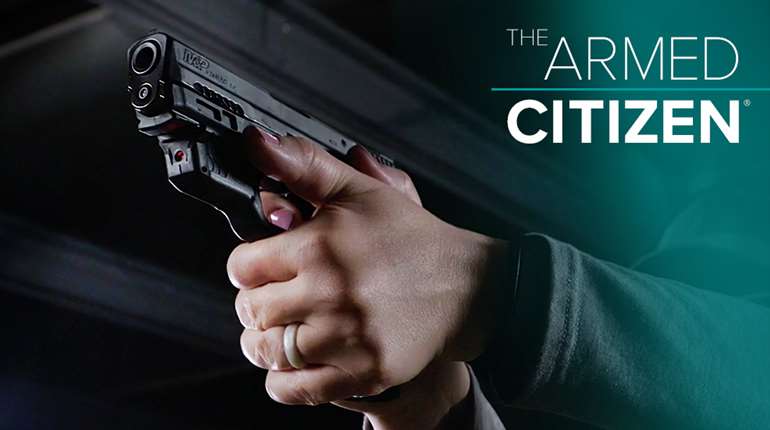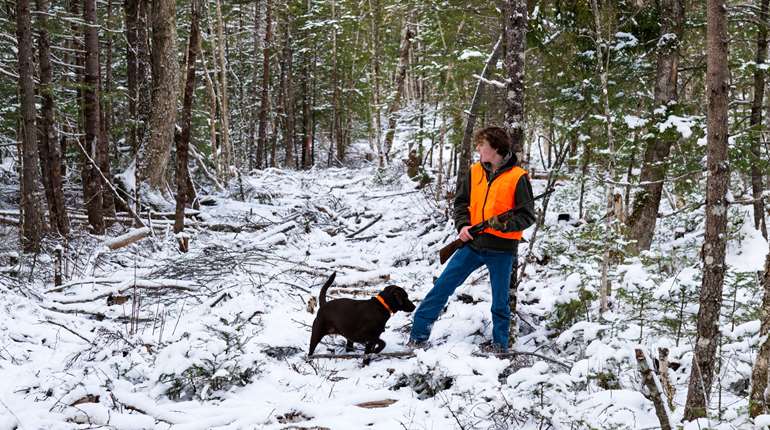
While we’re all about you exercising your Second Amendment rights and carrying a firearm to protect yourself from violent situations, we’re also big on you getting out of trouble before it gets bad enough that you have to draw your firearm in self-defense. Sometimes that looks like avoiding places where violence tends to happen. Sometimes it looks like leaving a situation that’s starting to go sideways or running away from danger. And sometimes it looks like de-escalating someone who is considering violence or who looks like they might turn violent.
We usually think of violent situations as criminal encounters—assaults, muggings, attempted rapes and the like. But you might also face violence from non-criminal people who are angry, unstable or unable to control their emotions, particularly if your job has you frequently interacting with the public in a social-work or medical setting. Although they certainly don’t work in every scenario or with every individual, de-escalation techniquescan work on both types of violence and are often worth a shot if removing yourself from the situation isn’t an immediate option.
De-escalation is not easy, but the concept is simple: Figure out what this person wants and help them get it without endangering yourself. Put on your thinking cap, because this is all about problem solving. Essentially, you’ll be negotiating a way for the other person to get what they want and for no one else to get hurt in the process.
Criminal Violence
De-escalation with a resource predator who is demanding your wallet is the easiest example, because it’s extremely straightforward. He’s already told you what he wants. Give him your wallet (or better yet, throw it away and run in the opposite direction) and you’ve stopped violence from happening or continuing. You’ve still been mugged, but there’s a good chance you won’t be shot or stabbed or get into a shoot-out on the street with this method.
It gets more difficult when emotions like pride get involved and the transaction isn’t quite as cut-and-dried. If someone is getting in your face in the club over whatever perceived slight, and they’re clearly gearing themselves up to start slinging fists, what is it that they want that you can give them to de-escalate and prevent the violence from happening? Some people just want to fight, especially when they’re under the influence of something, but other times you can de-escalate this situation by apologizing for whatever they’re pissed about (even if you didn’t do anything to apologize for) and letting them feel like they’ve won, you’ve lost, and they’re the big tough guy or girl who gets to strut around in front of their friends because they forced you to back down. That might be hard to swallow, but who cares? You didn’t get punched in the face. You didn’t have to draw your firearm to defend against physical violence. You’re probably embarrassed, but you still win.
Sometimes what the violent person wants is physical—money, your car, your jewelry, certain territory they claim and don’t want you in. Sometimes it’s emotional—they want to “win” over you. They want control, power, an ego stroke, revenge for a real or perceived slight, street cred in front of their friends or their gang, etc.
It’s worth noting that you will likely be more confident exercising de-escalation techniques if you have a gun on your hip as another option. If the de-escalation fails, you have a backup plan. If you are completely defenseless, you’re negotiating with zero power, and you will reek of desperation because de-escalation is the only tool you have. Desperation = weakness, and that’s an irresistible smell to some predators.
Obviously, there will be many cases where what the person wants is totally unacceptable and you will not be helping them get it—murder, rape and other process predator crimes are clear examples. If you’re dealing with a process predator, de-escalation is probably off the table.
Non-Predatory Violence
When dealing with non-criminal violence, as a social worker or medical professional might encounter on the job or you might stumble upon in a public place, the goal is the same, but the methods are a little different. I almost always advocate leaving if you can (I’m no sheepdog), but if you need to engage because it’s your job or responsibility, or because you can’t get out, keep in mind that this is still about getting the person what they want without anyone else getting hurt.
I once sat in the back of a doctor’s waiting room while an angry patient who had run out of pain meds faster than his prescription allowed ranted and raved at the doctor right in front of the only door, blocking my exit. The doctor, who had recently left the Marine Corp, put on an absolute master class on de-escalation while I watched in interest (and fear, to be honest). What the about-to-become-violent patient wanted were pain pills, but that probably wasn’t all. I’m no mental health professional, but I’m betting he also wanted to be heard and wanted reassurance that somehow he could get relief from what he was dealing with. The doctor gave him that, and no one got hurt.
Though I wasn’t familiar with these techniques at the time, looking back, it was clear that the doctor was using some of the tips listed on the CISA (the Cybersecurity and Infrastructure Security Agency) website: Ensure your tone, facial expressions, body language and gestures relay calm and empathy. Remain respectful and courteous. Use phrases like “please” and “thank you.” Change the setting if you can or if you need to, and respect the person’s personal space (no touching), listen with your full attention, ask questions and nod encouragingly, and empathize without judgement.
When attempting to de-escalate in this kind of situation, keeping your voice calm and at a reasonable volume while speaking slowly can help defuse high emotions. Relax your body language, keep your hands down and visible, avoid sudden movements, and keep your face neutral—a fake smile might do more harm than good.
As we all know, the phrase “calm down” has never calmed anyone down. Instead, try empathetic language like “I can see you’re upset,” and “I want to help; what can I do?”
If you’re in this kind of de-escalation and the situation seems to be getting worse instead of better, it’s time to leave or call for additional help, assuming your job allows for it.
Know Your Limits
Before you attempt de-escalation, you should know your own limits—if you have a terrible temper and absolutely can’t remain calm when someone else is going off the rails, you might not have any luck de-escalating and might make things worse if you try. You should also consider whether there’s any way for everyone in the situation to get what they want, and if there isn’t a way to get the potentially violent actor what they want (or a reasonably close substitute) without hurting someone, de-escalation will almost certainly not work.
But if you think you’re in a situation where you can stop violence before it starts, consider the very simple question that sits at the heart of de-escalation: What does this person want, and how can I help them get it without endangering myself?











































